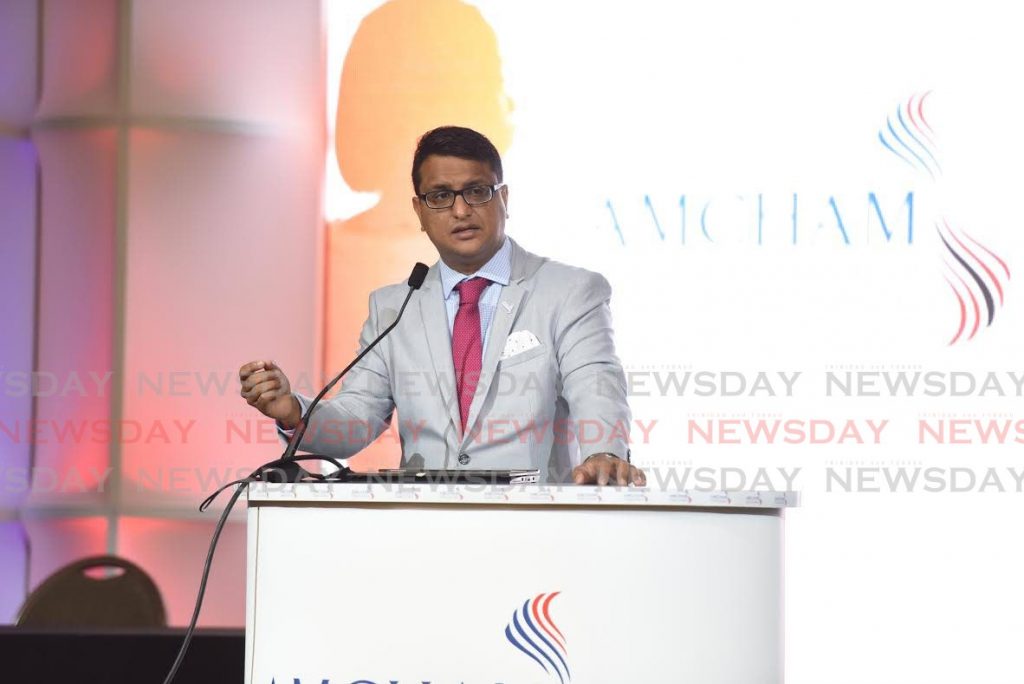No improvements until Customs, industry on same page

IF THE ease of doing business in this country is to improve, facilities involved in the trade, such as Customs, must be on the same page as the industries driving the economy.
This was one of the major takeaways from Amcham's latest webinar titled Ease of Doing Business – Trade Modernisation on Monday.
Amcham CEO Nirad Tewarie said the country cannot talk about attracting investment if the conditions to attract investment are not there.
"If the fundamentals are not there to support investment, the investment will be hard to come by. It will be state-driven (and) largely drive us further into debt and that is not the kind of economic development that is sustainable and that will create the kind of future and society that we want," said Tewarie.
"So, we have to improve where we sit on the ease of doing business ranking, and that means the trade facilitation component of our economy needs radical improvement."
The World Bank’s 2020 Ease of Doing Business ranks Trinidad and Tobago at 105 out of 190 countries.
In a statement issued after the webinar, AmchamTT said it considers the ranking "a worrisome position for TT that needs urgent attention if we want to create a business-friendly environment to attract investors, as well as to create the opportunities for businesses to become more efficient."
The chamber added, it was "empathetic to the challenges Customs is currently facing, having to balance revenue collection and maintain border security within the current economic climate, while doing both in the context of trade facilitation.
"However," the statement read, "the approach that is being met with right now from Customs does not place customer service and trade facilitation at the level of priority that we would like to see."
Meanwhile, director of customs and regulatory affairs at DHL Fernando Peña elaborated on a roadmap, which he said TT should consider to enhance the trade facilitation process.
He recommended the publishing of regulations to provide legal certainty and allow traders to provide input on what is feasible operationally, while providing guidance to customs officials.
He said TT also needs to consider a de minimis exemption (exceptions for small matters) to save on customs’ inspection and processing resources; to involve the private sector more in the development of procedures and regulations; and to simplify border procedures with fewer formalities such as removing data elements from customs declarations and expanding the values under which traders need to use a broker for customs transactions.
These measures, Peña said, will expedite trading and free up inspection resources and post-entry audits.
He said DHL has the data when shipments leave their points of origins before arriving at their destinations which can be submitted to Customs authorities for pre-arrival processing. This, Peña said, can free up a lot of resources once the shipment arrives and allows for a separate release from clearance for low-risk shipments to be released immediately on arrival.
The clearance payment process, he noted, can be facilitated by electronic transmission of customs transactions and a built-in risk management system that detects trends through time that can inform authorities of risky shipments.
Peña also advocated for the coordination of border agencies to establish a single window where traders submit information into one electronic data interface.
Finally, Peña proposed the adoption of measures for trusted traders, where they are asked to provide information concerning their supply chains and other operations so the authorities can allow expedited treatment to such traders at the border, once trust is established.
Meanwhile, director for planning and research at the Jamaica Customs Agency (JCA) Earl Anthony Stewart Jr said numerous reform initiatives have helped improve the trade facilitation process and enhanced the ease of doing business in Jamaica.
Stewart said this is a testament to the leadership from the Prime Minister Andrew Holness and the strategic plan laid out by the Jamaican government to get Jamaica into the top ten countries with respect to ease of doing business.
He said, "It is the ambitious vision of wanting to see improvement and wanting to get in that top two that led to several strategic moves that now see Jamaica ranking at 71 and the number-one ranking in the Caribbean."
In 2020, Stewart noted, Jamaica adopted a multi-sectoral approach using a national development plan to cover every sector with strategic initiatives and outcomes that guide what all ministries and departments are doing.
"We have established the National Competitiveness Council with the mandate to spearhead and manage business reform in Jamaica. The council is mandated quarterly to submit progress reports on issues that need to be addressed to improve the ease of doing business in Jamaica. The Trade Facilitation Taskforce has also been set up which monitors the inspection for a single entity that aims to create efficiency in doing business and to speed up trade.
"The goal," Stewart said, "is to make Jamaica the place where people want to live and raise families."


Comments
"No improvements until Customs, industry on same page"